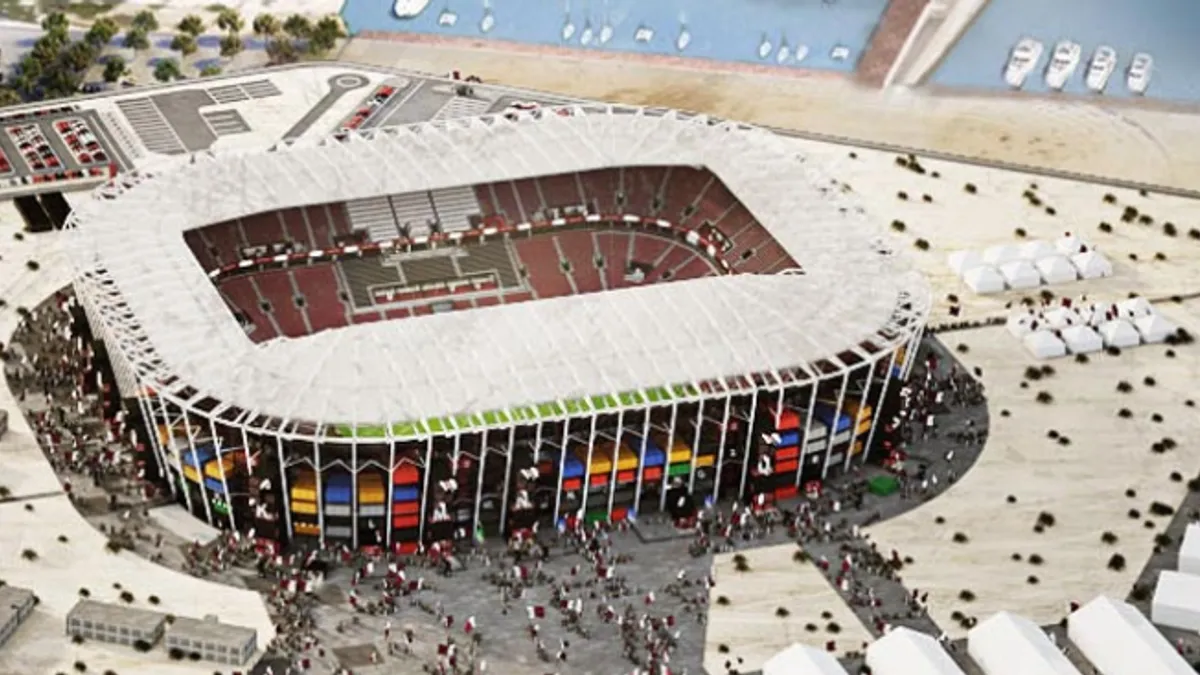Dive Brief:
- Work on Stadium 974, previously known as Ras Abu Aboud Stadium, has finished ahead of the 2022 FIFA World Cup, dezeen reported. The arena is located in Doha, Qatar, and is made of shipping containers and modular, structural steel.
- Stadium 974 — which gets its name from the number of containers that make it up — holds 40,000 spectators. Fenwick Iribarren Architects designed the project to be completely demountable.
- The stadium's modular design also reduced the overall construction cost, timeline and material waste. Additionally, efficiency methods ensured it will reduce water use by 40% compared to conventional stadium construction, dezeen reported.
Dive Insight:
The goal will be to dismantle and reassemble the Stadium 974 in a new location or repurpose it as several smaller venues after the international soccer tournament.
The containers that make up the exterior serve multiple purposes. Not only do they serve as spaces to hold staircases, concessions and restrooms, but they also provided their usual service; the containers delivered other construction materials to the jobsite.
Fenwick Iribarren Architects' design also achieved a five-star certification in the Global Sustainability Assessment System (GSAS) for its construction and design, according to the Supreme Committee for the 2022 FIFA World Cup. The GSAS rates green building and infrastructure across the Middle East and North Africa. Six stars is the highest achievable rating.
The stadium's shape and gaps between seats allows for natural ventilation, which means other artificial cooling is not required. This is also aided by the stadium's proximity to the Persian Gulf.
FIFA's selection of Qatar for the 2022 World Cup drew criticism for human rights issues and high costs within the country.
And the cost of the event is gargantuan, as it often requires building several new stadiums, venues and the infrastructure to support the event. Engineers Against Poverty estimated the Qatar World Cup will cost $222 billion, exceedingly high in comparison to other recent World Cups. Russia in 2018 cost $11.8 billion, and Brazil in 2014 $15 billion.













